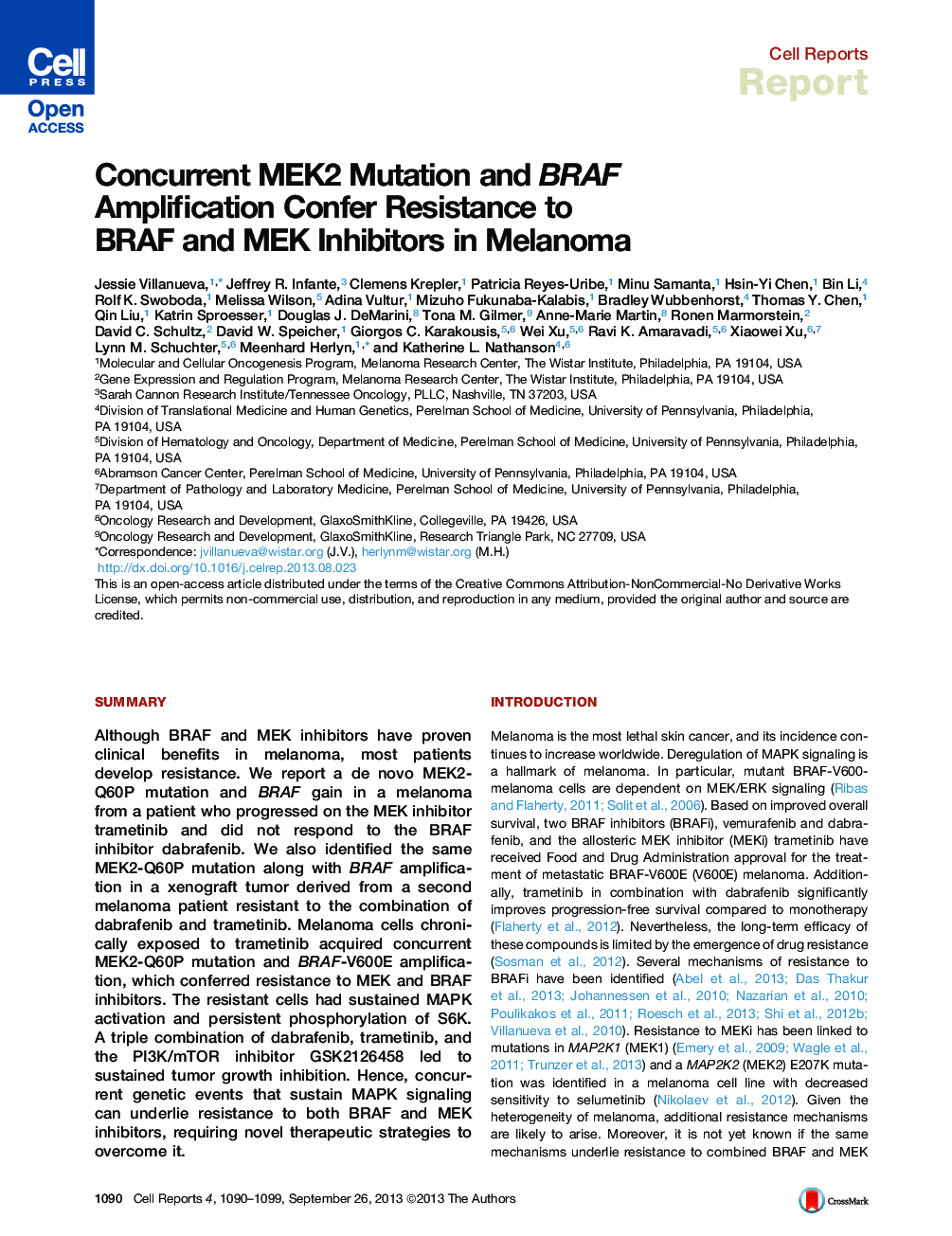| Article ID | Journal | Published Year | Pages | File Type |
|---|---|---|---|---|
| 2042009 | Cell Reports | 2013 | 10 Pages |
•MEK2Q60P mutation and BRAF amplification confer resistance to BRAF and MEK inhibitors•ERK and S6K are persistently phosphorylated in the BRAF- and MEKi-resistant tumor cells•A triple combination of BRAF, MEK, and PI3K inhibitors overcomes resistance in vivo
SummaryAlthough BRAF and MEK inhibitors have proven clinical benefits in melanoma, most patients develop resistance. We report a de novo MEK2-Q60P mutation and BRAF gain in a melanoma from a patient who progressed on the MEK inhibitor trametinib and did not respond to the BRAF inhibitor dabrafenib. We also identified the same MEK2-Q60P mutation along with BRAF amplification in a xenograft tumor derived from a second melanoma patient resistant to the combination of dabrafenib and trametinib. Melanoma cells chronically exposed to trametinib acquired concurrent MEK2-Q60P mutation and BRAF-V600E amplification, which conferred resistance to MEK and BRAF inhibitors. The resistant cells had sustained MAPK activation and persistent phosphorylation of S6K. A triple combination of dabrafenib, trametinib, and the PI3K/mTOR inhibitor GSK2126458 led to sustained tumor growth inhibition. Hence, concurrent genetic events that sustain MAPK signaling can underlie resistance to both BRAF and MEK inhibitors, requiring novel therapeutic strategies to overcome it.
Graphical AbstractFigure optionsDownload full-size imageDownload as PowerPoint slide
